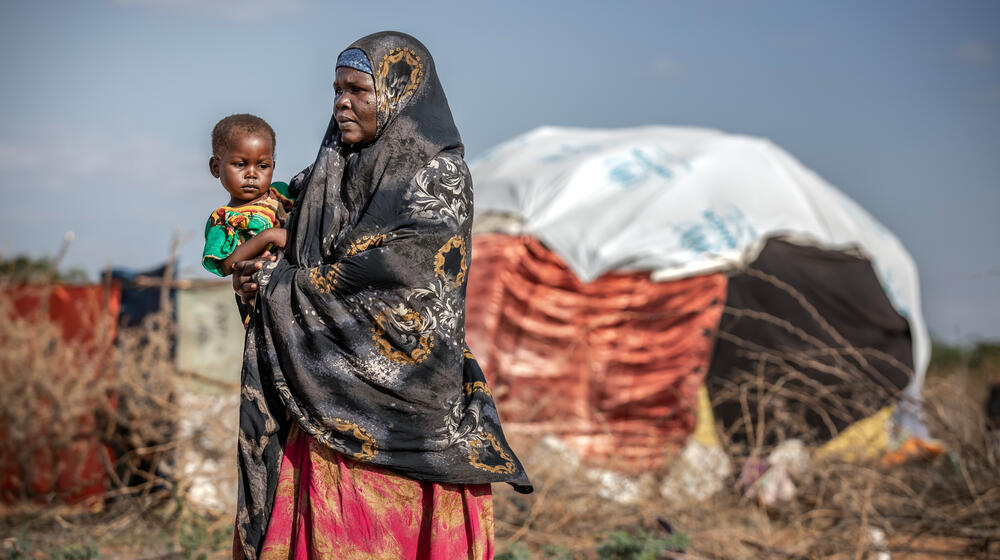Conflicts and wars, including displacements within and outside their home countries, come with dire consequences for women and girls. According to the United Nations Refugee Agency, UNHCR, women and girls make up 50% of any displaced, refugee, and stateless population.
After losing their homes to conflicts, many of the women and girls move to live in internally displaced persons or IDP camps, while others flee to neighbouring countries to live as refugees in camps and settlements there.
The camps and settlements shelter them from being ravaged by conflicts, but they do not, however, protect them from being sexually and physically abused. Instead, the chances of displaced women and girls being sexually and physically abused increase when they live in camps and settlements.
Uganda for example, hosts the largest number of refugees in Africa. As the number of refugees is increasing, so is sexual and gender-based violence or SGBV cases. Between July 2019 and May 2020, 51 SGBV cases were recorded in the country’s Bidibidi refugee settlement where over 196,000 refugees mostly from South Sudan, Sudan, and DR Congo live. Over 103,000 of the refugees in the settlement are females.
By the end of December 2022, UNHCR in Uganda reported it managed 5,851 GBV cases in the country with 24% of the cases involving physical assault and 20% being rape cases. The number of cases managed in 2023 stood at 4,239 by the end of September, with 21% of them being physical abuse, 15% rape cases, and 5% sexual assault. Figures from both years show that of these three forms of GBV, refugee women in the country majorly suffer physical assault followed by rape and sexual assault.
Similarly, refugee camps and settlements across Kenya have also recorded several cases of SGBV. In the Kakuma refugee camp, which is located in the country’s northwestern region, 10 rape cases were reported in May 2016 and about eight to 10 more in mid-April same year with victims being female Somali refugees. A UNHCR report estimates that one in five refugee or displaced women have faced sexual violence.
In 2022, the GBV Support Centre in Kakuma said it received 15-20 cases of rape and physical assault monthly, especially from young girls. “Here in the camp [Kakuma] there is not enough security. You could get raped on your way to just anywhere. If a boy or man makes advances at you and you turn down his advances, he could forcefully sleep with you and before the case gets to the UNHCR, it could be too late,” Rose, a 22-year-old South Sudanese refugee living in the Kakuma refugee camp, said.
The number of cases is also increasing in West African nations. IDP camps in northern Nigeria for example, have recorded several incidents of rape and other forms of sexual violence. In 2016, Human Rights Watch documented 43 cases of sexual abuse against women and girls in seven IDP camps in Borno, a state where the militant Islamic Boko Haram group has operated since 2009.
In January 2022, an aid worker was arrested for raping a female IDP in Borno and in April this year, it was reported that at least seven sexual abuse cases were recorded among IDPs in Benue State. Many cases of sexual violence in refugee and IDP camps are undocumented, especially the ones perpetrated by camp officials and caregivers.
However, women and girls who live in refugee and IDP camps are often exposed to SGBV as they often walk long distances in search of firewood, water, and food. Such situations put them at risk of SGBV perpetrated by armed men who lay ambush and take advantage of them.
“Many displaced women take up roles as breadwinners in their various settlements and searching for food for their families is how they keep up with that role. But as a result of the already existing gender inequality in our society, they still suffer multiple forms of gender-based violence while trying to play their roles as breadwinners,” Miriam Sylvanus, a Nigeria-based sexual and reproductive health and rights advocate, said.
According to Medecins Sans Frontieres, or MSF, over 670 girls and women living in displacement camps in DR Congo were sexually abused in April 2023. The organisation treated 1,500 female survivors of sexual violence in four IDP camps in July. The majority of the women admitted were raped while in search of firewood and food outside their camps, the MSF doctors adds.
Also, an estimated 41% of households in Uganda’s Nakivale refugee camp recorded violence in the form of beating, attempted rape, rape, and bodily injury during firewood collection in 2018. Women were the primary victims.
Yet, Rose believes women and girls in refugee and IDP camps do not have choices as their economic situation drives them to search for firewood and food outside their camps. “We still have to go out. We still have to look for what to eat because life in the camp is tough,” she said.
This story is part of Prime Progress’s series shedding light on women’s issues as part of the 16 Days of Activism against gender-based violence.






